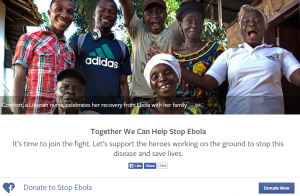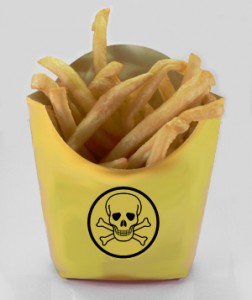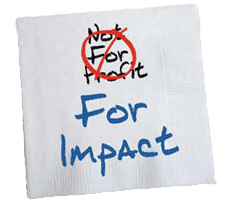Anybody who accessed their Facebook account this past week probably noticed a strange box at the top of their screen. Upon careful examination, any user would have seen that this box was a plea from Facebook asking for any donations to help stop the spread of Ebola in third world countries. In Nathaniel Mott’s blog for PandoDaily, he explores the importance of this fight and Facebook’s stance in it.
This is an excellent example of a company exhibiting social responsibility. With a social media site as popular as Facebook, there is no better platform to rally people globally. By working with organizations such as Red Cross, and Save the Children, Facebook is showing how Government, NGO’s and corporations can come together to reach a common goal. It’s also important to highlight that this campaign is effective, because it redirects the public attention to where it needs to be: West Africa.
Mott also makes a good point in stating that although we may be unable to remedy a problem, there is no reason why we cannot do everything in our ability to lesson the burden on others. Many of us get into the mindset that if we can’t fix something, there isn’t a point in trying. With all the funds that Facebook has helped generate, clearly, there is a point.
Image Sources:




